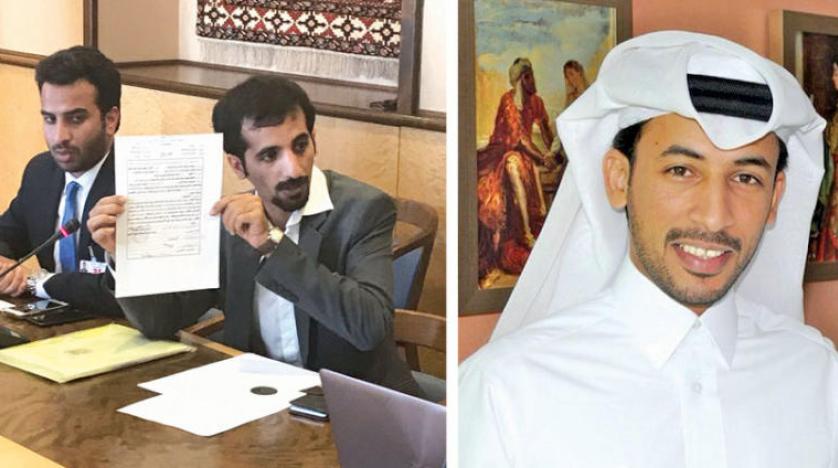London– Human Rights organizations condemned Qatar’s steps in revoking the nationality of civilians who expressed their opinion on the Gulf crisis.
Chairman of Arab Federation for Human Rights Ahmed al-Hamli said the procedures taken were unacceptable, describing the rights of citizenship and nationality as inalienable, especially when it comes to freedom of speech.
Speaking to Asharq Al-Awsat, Hamli confirmed that the UN is concerned with the revocation of the citizenship, adding that all international organizations are worried that this would hurl citizens into political issues.
The chairman also wondered how can Qatar condemn Rohingya crisis and displacement, while the authorities in Doha are using the same method with Arab tribes especially tribes of Murrah and al-Hawajer.
Hamli expressed the readiness of the Federation to assist the Office of the UN High Commissioner for Human Rights with all the possible means for resolving this case that is of concern to Arabs.
Meanwhile, the Arab Federation strongly condemned Doha’s decision to revoke the citizenship and nationality of poet Mohammed bin Fattis al-Marri.
The federation denounced repressive practices of Doha authorities against poets, intellectuals and tribal leaders.
AFHR reiterated that nationality is a human right recognized under international law and cannot be contested or denied by anyone except through legal restrictions; not based on political differences.
The act against poet Mohamed on the grounds of differences in political opinions is a flagrant violation, according to the Federation.
Marri’s nationality was revoked after he expressed his personal views on the Qatari crisis and Qatar’s relations with the neighboring Gulf States and other Arab countries.
The Federation stated that this decision is an infringement of the inherent human rights of the poet. He did not carry out any terrorist or illegal acts, and no judicial decisions were issued against him.
It called upon the Qatari authorities to respect the freedom of opinion and expression guaranteed by the Universal Declaration of Human Rights and all relevant international institutions.
AFHR considered that the punishment to rescind the nationality contests the Qatari constitution against one of its citizens and is evidently a breach of the principles of human rights. The Federation considered the Qatari government’s decision was not based on any legal grounds or fair trial.
International human rights law recognizes the right of states to decide who their citizens are, however, the international law has stressed that such a right is not absolute and that such measures must be subject to legal considerations, according to AFHR.
International law stresses that those who have been subjected to the withdrawal of nationality, have the right to appeal before the courts for fair trials.
The Arab Federation for Human Rights called upon Qatari authorities to annul the arbitrary decision and to return Marri’s nationality. It also appealed to local and foreign human rights organizations to exert pressure on the authorities and support those affected to regain their rights.
Mohammed bin Fattis Al Marri rejected Qatari authorities revoking the nationality of tribal sheikhs and wished the crisis would be resolved as soon as possible.
After 127 days of silence, the poet expressed his views on the crisis and voiced his concerns about the security and cohesion of the Gulf States, Qatar’s involvement in other countries’ internal affairs, and his rejection of the politicization of Hajj.
“If assault against countries is a red line, the assault on sanctities, Custodian of the Two Holy Mosques and the scholars is a line of fire that we do not allow to violate,” he stated.
Mohammed bin al-Dhib is another poet who had been persecuted by the authorities when he was imprisoned on false charges of incitement of violence against the regime in Qatar.
In 2005, Qatari authorities revoked the citizenship of about 12,000 members of Murrah and al-Ghofran tribes. Twelve years later, the government resorted to same measures and rescinded the nationality of Sheikh Taleb bin Shreim al-Marri and 50 members of his family.
